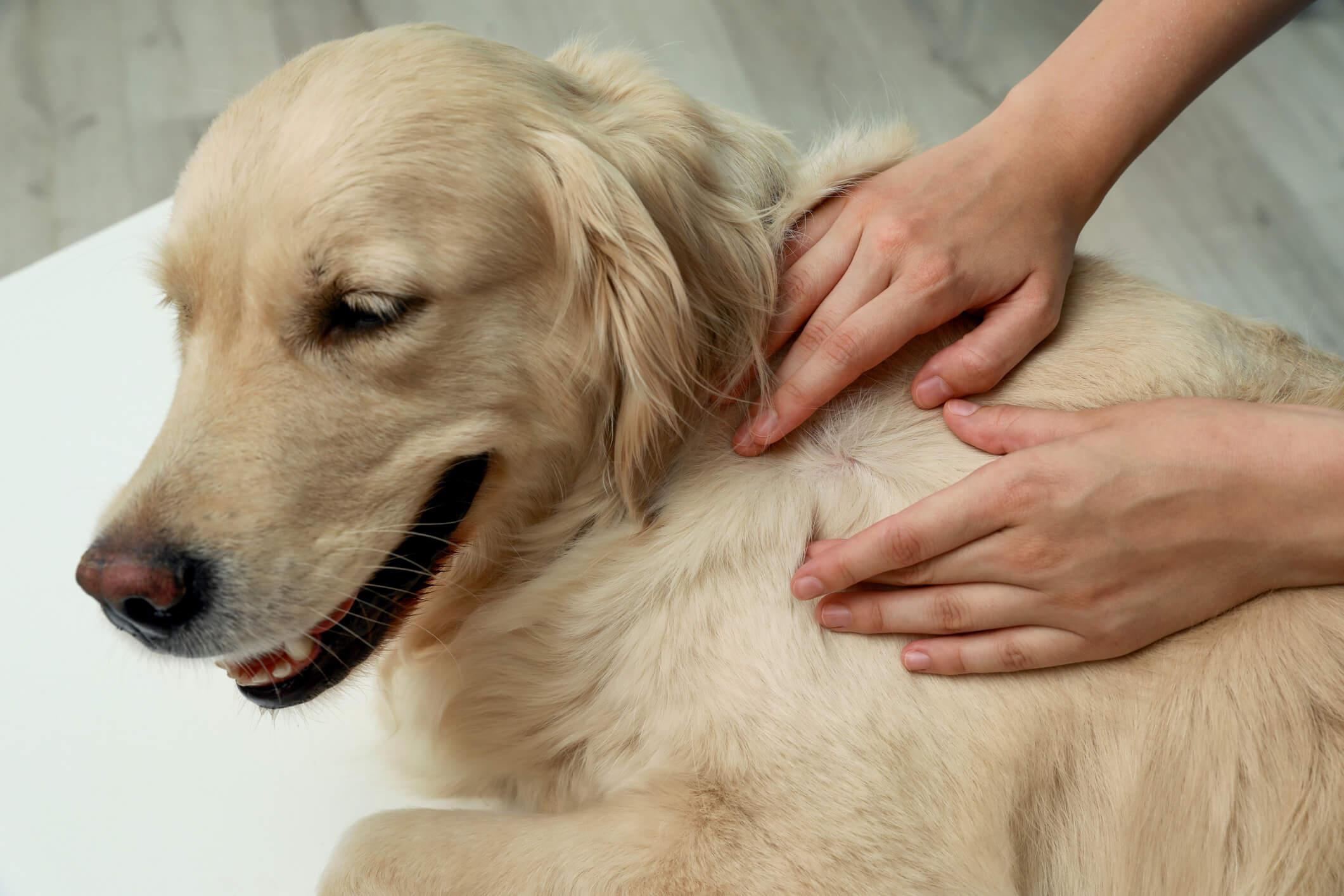
Can humans get fleas from dogs? Fleas are tiny, persistent parasites that primarily target our beloved pets, such as dogs. However, many pet owners wonder if these pesky insects can also infect humans. Understanding the relationship between fleas, dogs, and humans is crucial for maintaining a healthy home environment.
What Are Fleas?
Fleas are small, wingless insects belonging to the order Siphonaptera. Despite their size, they are formidable parasites that survive by feeding on the blood of birds and mammals, including our pets. These insects can jump great distances—up to one hundred times their body length—using powerful legs and a spring-like mechanism, making them highly mobile and difficult to catch.
Can Humans Get Fleas from Dogs?
Fleas are known for their close association with animals, particularly dogs and cats, but can these tiny parasites make the jump from our pets to us? The short answer is that yes, fleas can bite humans, although they don’t typically live on human hosts as they do on animals.
When a dog becomes infested with fleas, these parasites can easily spread throughout the home, lurking in carpets, bedding, and furniture. Since fleas are highly adaptable and excellent jumpers, they can hop from your pet to you, especially if you're in close contact with an infested dog or spend time in areas your dog frequents.
While fleas may bite humans, they generally don’t stay on us long. Humans lack the thick body hair that provides fleas the shelter they need to thrive. Instead, fleas tend to bite exposed areas of skin, like the feet, ankles, and lower legs—regions that are close to the ground and more accessible to fleas living in carpets or on floors.
Despite their tendency to bite and feed on humans, fleas are unlikely to cause a long-term infestation in people. However, flea bites can be irritating and may lead to more serious health concerns if left untreated, particularly if a person is allergic to flea saliva. Additionally, fleas can transmit certain diseases, although this is relatively rare in humans.
How Do Flea Bites Affect Humans?
When a flea bites, it pierces the skin with its specialized mouthparts to draw blood. The initial bite often goes unnoticed, but the body's reaction to flea saliva causes the characteristic symptoms to develop. Flea bites typically appear as small, red, itchy papules, often arranged in clusters or lines, a pattern sometimes referred to as the "breakfast, lunch, and dinner" configuration.
For most people, flea bites result in mild discomfort, including itching and redness around the bite site. Scratching these bites can exacerbate the irritation and increase the risk of infection. When scratched, the skin becomes vulnerable to bacteria that may enter through the open sores, leading to painful, swollen, and potentially pus-filled lesions.
Preventing Flea Infestations
Fleas can quickly spread throughout your home, so a proactive approach is essential to keep them at bay.
Regular Pet Grooming and Flea Treatments:
- Regular grooming of your pets is the first line of defense against fleas. Brushing your dog frequently can help spot fleas early before they have a chance to multiply.
- Using veterinarian-recommended flea treatments, such as topical solutions, oral medications, or flea collars, can effectively repel and kill fleas on your pet. These treatments should be used consistently according to your vet’s advice, especially during warmer months when flea activity is highest.
Maintaining a Clean Home Environment:
- Fleas often thrive in the environment as much as they do on pets. Regular vacuuming of carpets, rugs, and furniture helps remove flea eggs, larvae, and pupae before they can develop into adults. Pay special attention to areas where your pets spend most of their time.
- Wash pet bedding, blankets, and any fabric surfaces your pets frequently use in hot water to kill any fleas or eggs hiding there.
- Consider using flea sprays or powders designed for home use in areas prone to flea infestations, such as carpets, pet beds, and furniture. These products can help prevent fleas from developing and multiplying.
Should Dogs Sleep in Your Bed?
The question of whether dogs should sleep in your bed is common among pet owners, with strong opinions on both sides.
Deciding whether your dog should sleep in your bed depends on your personal preferences, lifestyle, and your dog’s behavior and health. If you value the comfort and companionship of having your dog close at night, and your dog is clean, well-behaved, and doesn’t disrupt your sleep, sharing your bed with your dog shouldn’t be an issue.
Have Flea Bites? Visit AFC
At AFC Morton Township IL, each healthcare provider is equipped to provide the patient care you need to recover from flea bites quickly and comfortably. Flea bites are often easy to identify, but the irritation they cause can vary from mild itching to severe allergic reactions. At AFC Morton Township IL, our providers will assess the severity of your bites and recommend the most appropriate treatment, whether topical creams, oral antihistamines, or antibiotics for any secondary infections.
If you’re dealing with the discomfort of flea bites or have concerns about potential health risks, don’t wait—contact your nearest AFC Morton Township IL today for prompt urgent care treatment services.
Find Your Center


